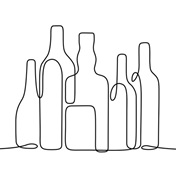Researchers have found that opiate-addicted patients benefited just as much from a once-weekly regimen of a drug combination plus psychotherapy as they did from three-times-a-week medication and extended weekly counselling. The treatment also took place in the relative convenience of a doctor's office.
"We've demonstrated the safety and efficacy of providing this type of treatment in a primary-care setting and that had never been done before," said Dr David A. Fiellin, lead author of a study published in the July 27 issue of the New England Journal of Medicine.
"We've also identified a moderate or minimum counselling therapy and medication dispensing that is safe and effective," he said.
Less is also cheaper
Less is also cheaper, which should please health-care providers and payers.
"If they're considering offering this type of treatment through doctors' offices, they don't have to feel obligated to provide a Cadillac level of services," added Fiellin, who is an associate professor of medicine at Yale University School of Medicine.
The US Food and Drug Administration approved the drug buprenorphine alone and in combination with naloxone for battling opioid addiction in 2002. The Drug Addiction Treatment Act of 2000 enabled the medications to be dispensed from a physician's office.
Buprenorphine (brand named Temgesic or Subutex) diminishes cravings for opiates such as heroin, while naloxone (Narcan) counters potential abuse of buprenorphine. The buprenorphine-naloxone combination has been shown to be as effective as moderate doses of methadone in helping addicts quit.
It has been unclear, however, what the optimal level of counselling and prescriptions is.
How the study was conductedFor this study, 166 opioid-addicted patients were randomly assigned to one of three treatments: standard medical management (20 minutes of counselling once a week) with either once-a-week or three-times-a-week medication dispensing or enhanced medical management (45-minute counselling) and thrice-weekly medication dispensing. Participants stayed in the treatment arms for 24 weeks. Patients received the same amount of medication regardless of how often they picked up a prescription.
The three treatment arms had about the same effectiveness when it came to urine tests: 44 percent tested negative for opioids in the once-weekly group, 40 percent in the thrice-weekly group and 40 percent in the enhanced group/thrice weekly.
The treatment groups were also similar in the number of consecutive weeks patients stayed away from illicit opioids and the proportion of participants remaining in the study at 24 weeks (48 percent for standard/once-weekly; 43 percent for standard/thrice-weekly; and 39 percent for enhanced and thrice-weekly).
Why?
"Part of the answer is that the medication, in and of itself, is so effective, so you would really need to have a large magnitude of difference in services to demonstrate any benefit over what the medication is able to provide," Fiellin said.
Participants receiving medication once a week generally said they were more satisfied than those receiving medication three times a week.
"They all felt that a weekly visit was reasonable enough for them," Fiellin said. "For some of these patients, it may be a deterrent if you have them coming in too frequently or attending too much to issues around addiction, especially if they are doing well and are abstinent."
Certain patients, however, will no doubt need additional counselling and should receive it, he added.
Results may not apply to allOne lingering question is whether the results would be the same for subgroups of patients, for example, people who are cross-addicted to painkillers or who have other psychiatric disorders.
"It's an excellent study, but I'd like to know if there is a distinction in treatment in the intensity of treatment for those people," said Harris Stratyner, associate professor of psychiatry at Mount Sinai School of Medicine in New York City. "They need to refine the population. Is this just for opioid users, [or] opioid users with other psychiatric issues? It's a very heterogeneous population," Stratyner said.
Although the study did not separate different patient groups, additional research which has been submitted for publication found that patients addicted to prescription opioids - such as oxycodone, hydrocodone, methadone and fentanyl - did better than heroin-dependent patients, even with the lower level of counselling.
More people OD on painkillersThat could prove important, since a study released this week by the US Centres for Disease Control and Prevention found that opioid prescription painkillers now cause more drug overdose deaths in the United States than either cocaine or heroin.
According to the study, in 2002, drug overdoses killed more than 16 000 people in the United States, and in 2002 surpassed both cocaine and heroin as a cause of overdoses.
Between 1999 and 2002, the number of overdose deaths linked to opioids increased by 91.2 percent, the researchers said, compared to 22.8 percent for cocaine and 12.4 percent for heroin. The study was published in the journal Pharmacoepidemiology and Drug Safety.
"The big secret that many people are not aware of is that an estimated three million folks are addicted to narcotic pain medication in the US and just about one million addicted to heroin. So, prescription drug abuse is much more of a problem in this day and age," Fiellin said. – (HealthDayNews)
Read more:Substance abuse Centre
Ibogaine – The answer to addiction?
July 2006




 Publications
Publications
 Partners
Partners














